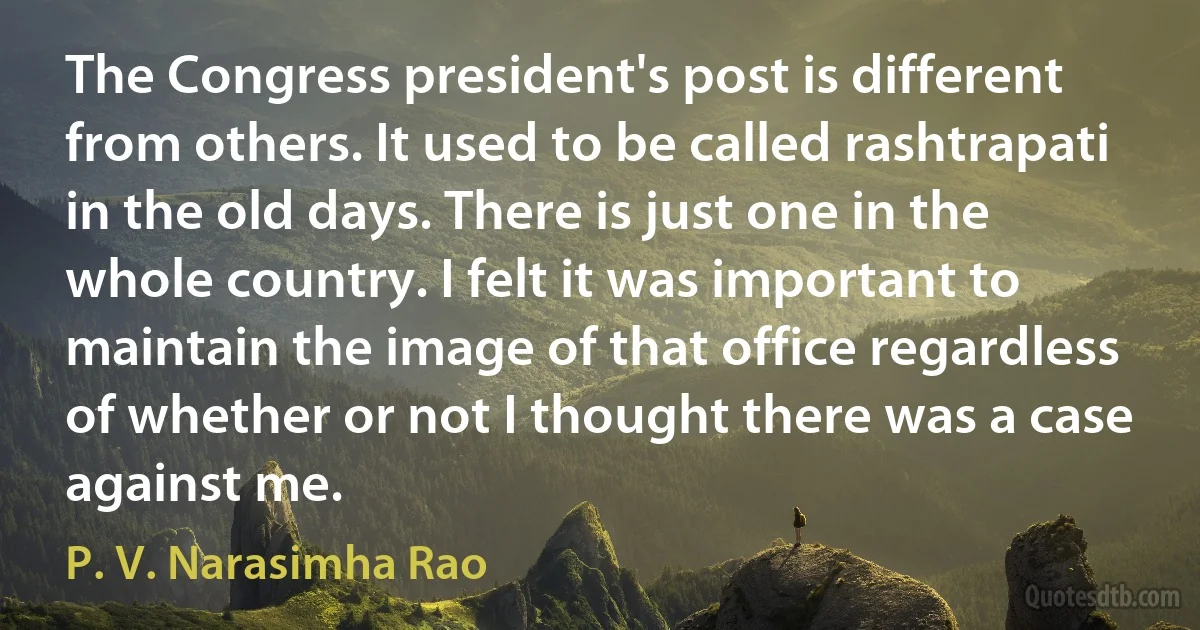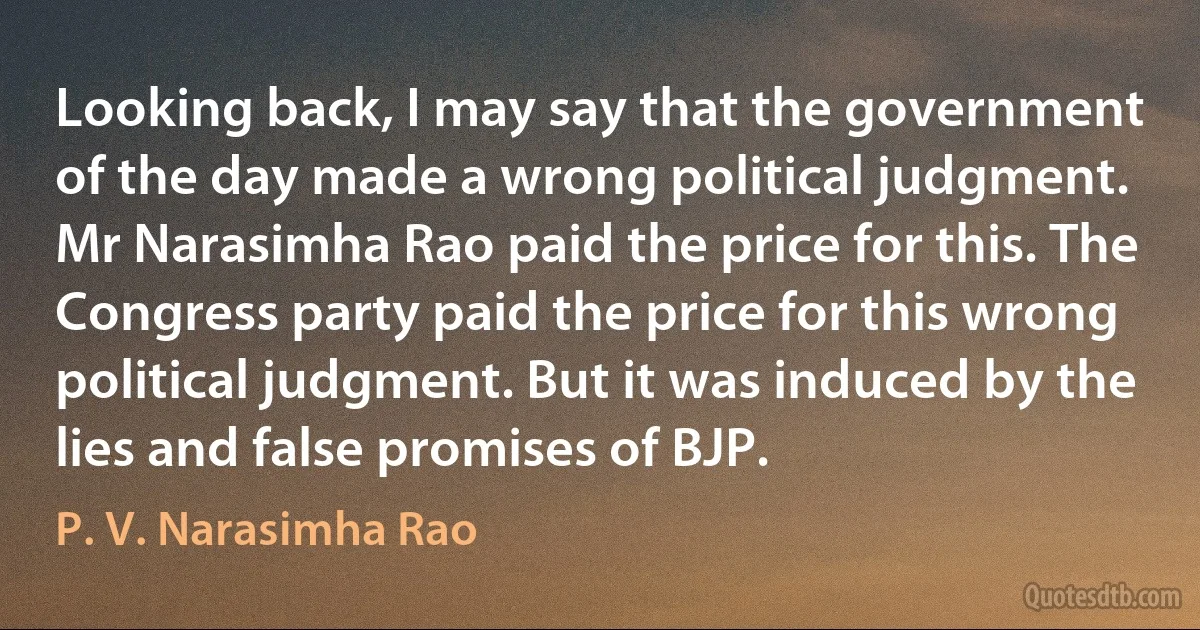P. V. Narasimha Rao quotes
The second category of personal questions would be more relevant when I finally call it a day and find myself in a reminiscent or atavistic frame of mind. As it is, I am still on the move -- and intend to be so. It is not fair to ask me to anticipate the possible answers to such 'terminal' questions. I hope my reluctance to answer these questions will be understood in the right spirit.

P. V. Narasimha Rao
The Congress for some time remained as a respectable residue. But a comprehensive party cannot survive too long as a residue. It may be small in size at a given time, but its composition should still remain comprehensive. This could be termed as the widest connotation of secularism. The Congress, therefore, is the most secular party in the real sense.

P. V. Narasimha Rao
He did not want to draw attention to himself. So he ingeniously made the delicensing announcement on the morning of the day Manmohan Singh was presenting his first Budget. The media clubbed the Budget and delicensing stories together as one composite reform story. In the public mind, Manmohan Singh was seen as the liberalizer, while Rao stayed in the background.

P. V. Narasimha Rao
His master stroke was to appoint Manmohan Singh as finance minister. He wanted a non-political reformer at the centre of decision-making, who could be backed or dumped as required. He presented Singh as the spearhead of reform while he himself advocated a middle path. Yet, ultimately, it was his vision that Singh executed.

P. V. Narasimha Rao
Despite his caricature as being indecisive, he was one of the most decisive leaders this nation has seen. On all crucial issues, he took decisions that have continued to shape India's rise over the last two decades. Manmohan Singh may be touted as the father of Indian economic reforms; but as Singh has himself acknowledged, it was Rao who fathered the process. Singh was an economic technocrat with little understanding of political constraints. It was Rao who shielded Singh from the left wing of his own party, a flank that had left no stone unturned in opposing the economic liberalization programme. Rao made economic reforms politically tenable at a time when his own party was out to scuttle his most ambitious undertaking. How ironical, then, that today the same Congress-wallahs try to take credit for India's economic success without acknowledging Rao's role.

P. V. Narasimha Rao
He could speak several Indian and foreign languages, he served under both Indira Gandhi and her son Rajiv, as foreign, defence and home minister. His political activism dated back to the struggle for independence. also a poet and writer and after his retirement he wrote a book following the career of a person rising through the ranks of Indian politics.

P. V. Narasimha Rao


